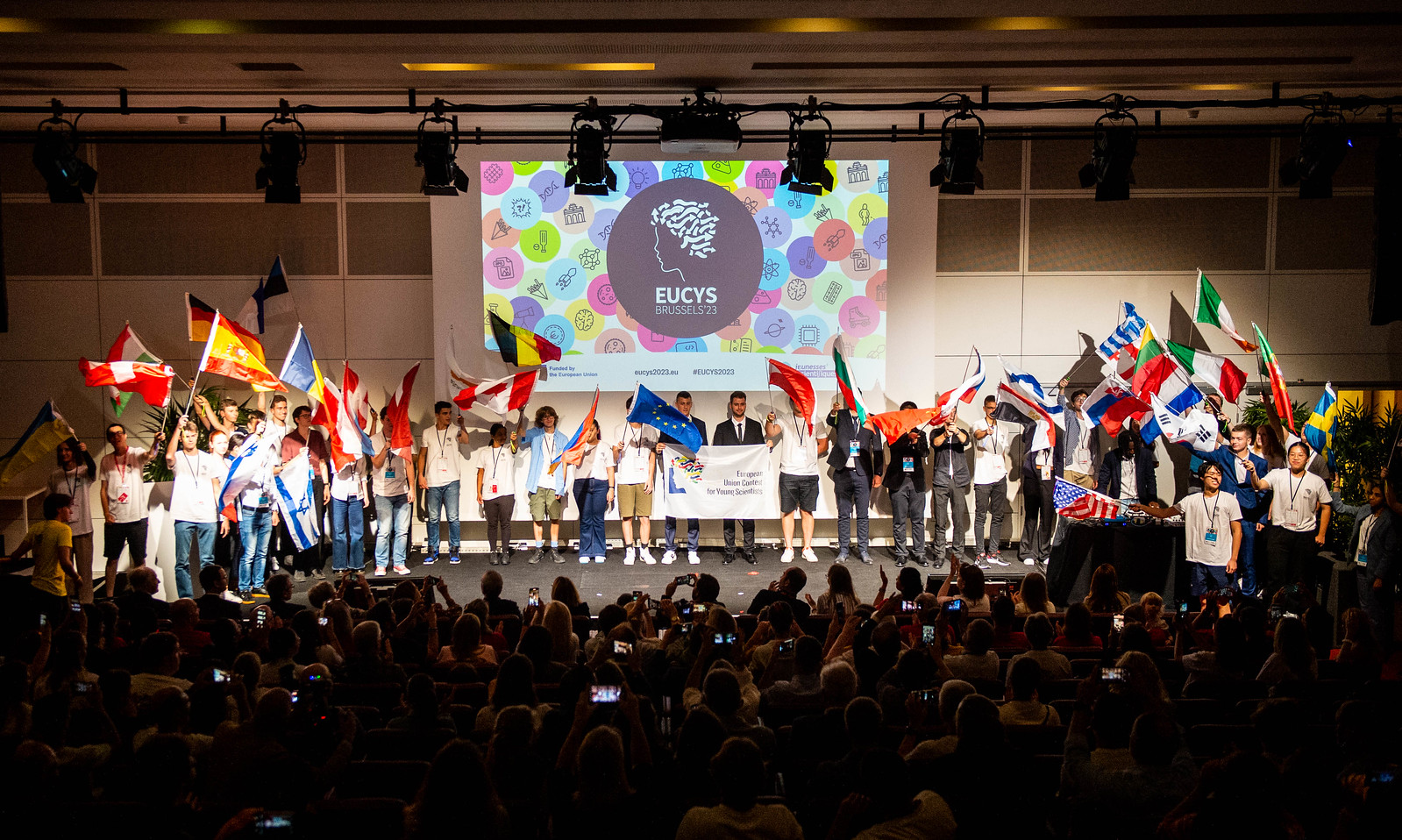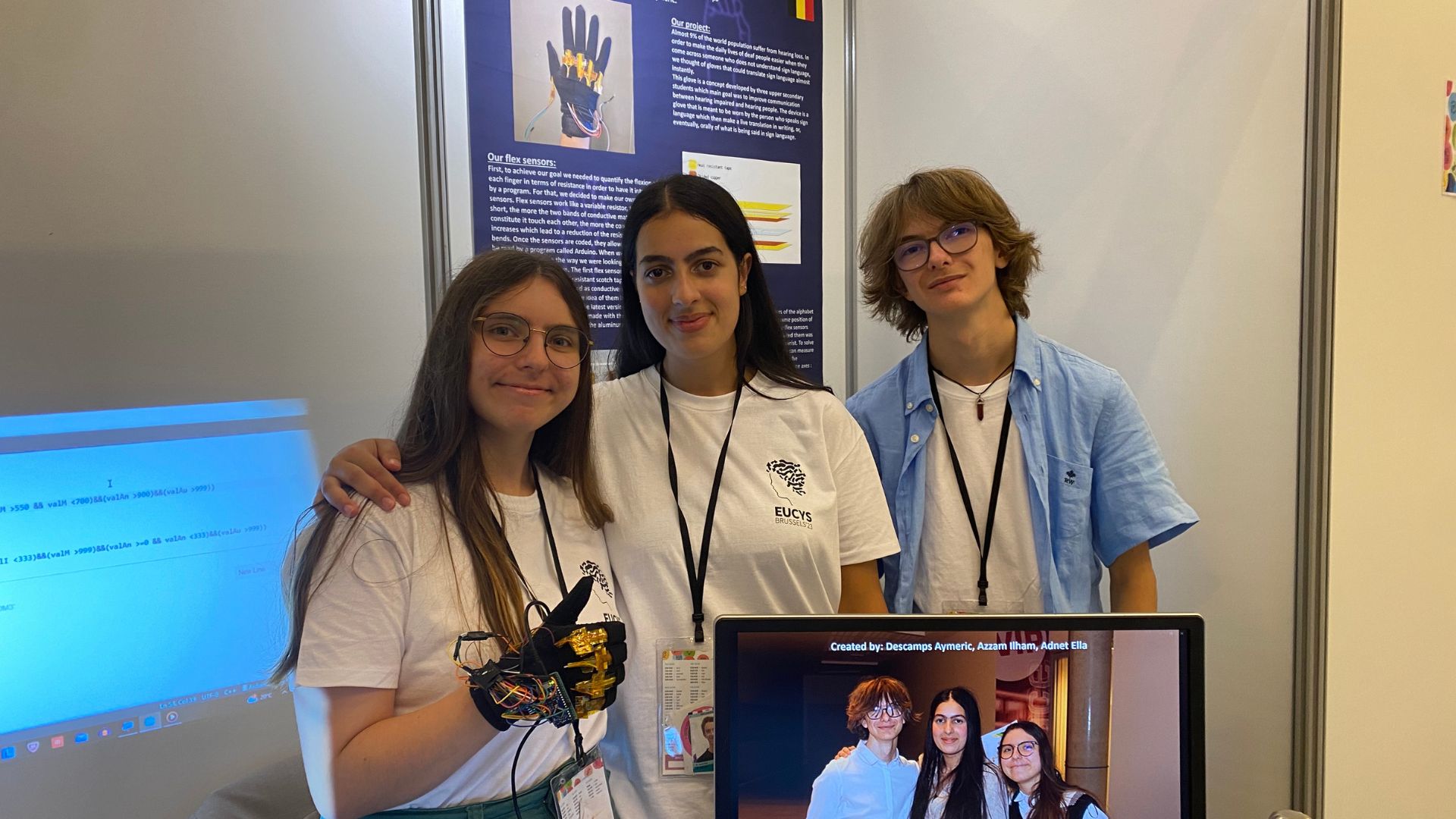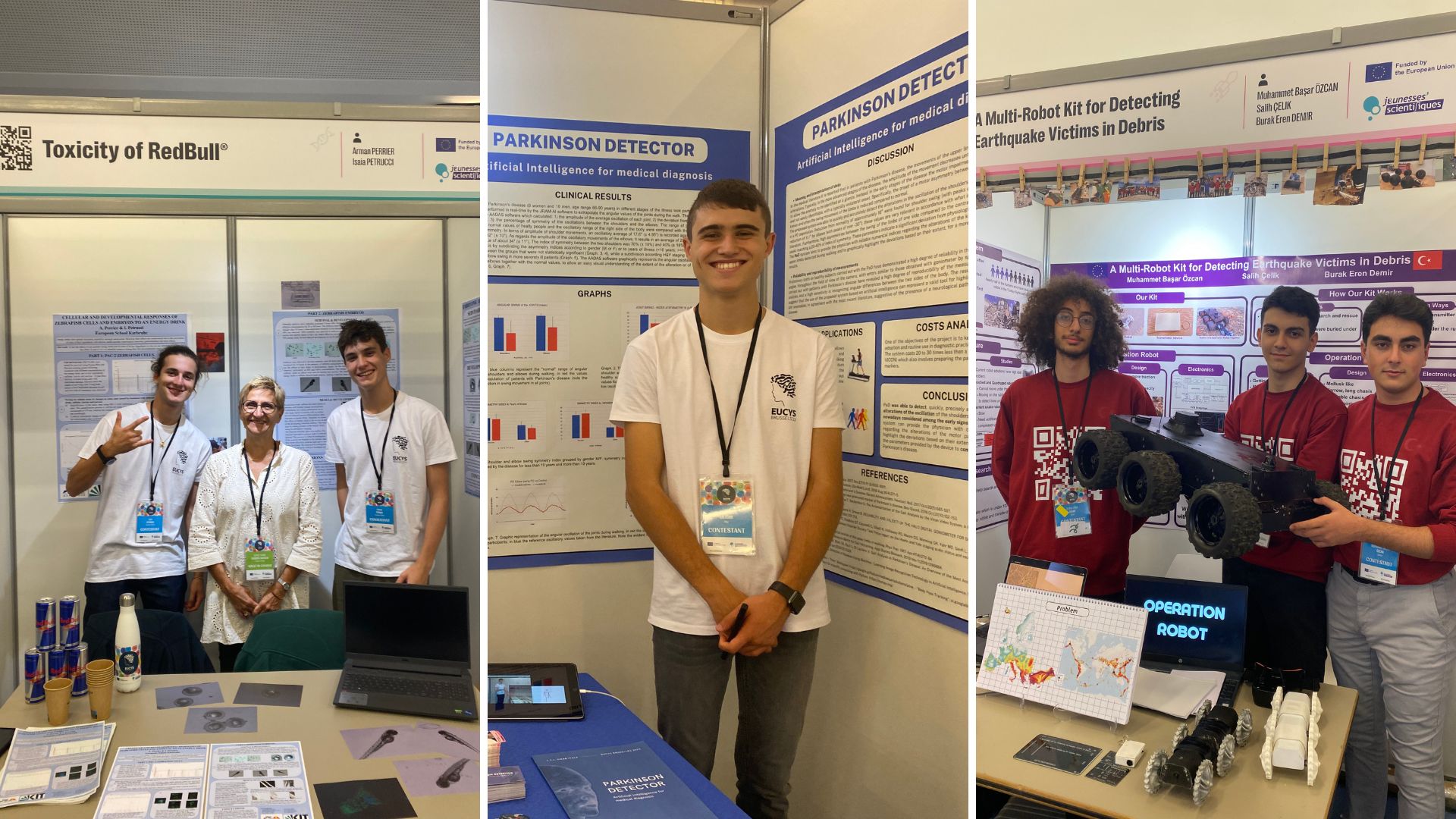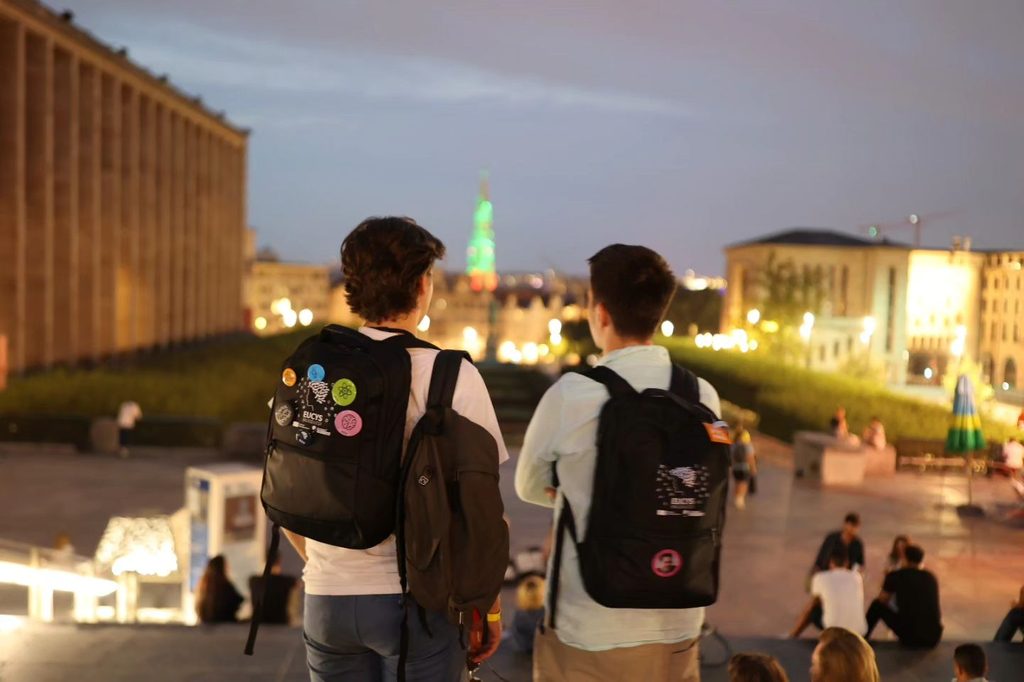From child geniuses to mini museums, converted cars and more, this week's round-up of positive news stories from across Belgium is sure to put a smile on your face.
Today's positive pick
This week marked the 34th edition of the European Union Contest for Young Scientists (EUCYS), giving students across the continent the opportunity to showcase their innovative and inspiring projects.
A total of 136 young Europeans from 36 countries in Europe and beyond are displaying their 85 inventions to the general public and a 22-member jury from 12 until 17 September at the EUCYS international science fair (Mont des Arts, Brussels) organised by the European Commission and the 'Jeunesses scientifiques de Belgique'.
The contest allows students to carry out extensive research, meet people of their age with similar interests and receive guidance from prominent scientists in the field. EUCYS 2023 Director Antoine Van Ruymbeke told The Brussels Times on Wednesday: "The kids make science accessible for people; they are good ambassadors."

The EUCYS 2023 opening ceremony on Tuesday. Credit: EUCYS / Flickr
Van Ruymbeke himself participated in 1999 with a project on eclipses – due to the hype of the full solar eclipse that year – assisted by NASA and the Brussels Observatory.
The EUCYS 2023 winners will be announced on Saturday afternoon, though Van Ruymbeke stressed that "the contest is not the point, it's the journey that matters. The students gain confidence and skills in personal development and it opens many doors and allows them to grow."
No longer lost in translation
The 85 projects on display are certainly inspiring. For instance, Belgium's team this year has created a glove enabling deaf people to communicate with those who do not know sign language.
The idea came from 17-year-old Ella whose parents are deaf. She first learnt to sign at six months old – before she could talk! But she found that she was constantly having to translate for her parents. Together with teammates Ilham (16) and Aymeric (17), she decided to bridge this gap in communication and created the 'sign language translator glove'.
They won the national Belgian science fair and a fair in Mexico with their project, and now they are bringing it to the EUYCS.

Ella Adnet (Left), Ilham Azzam (Centre) and Aymeric Descamps (Right) from the Belgium team. Credit: Isabella Vivian / The Brussels Times
People can sign with the glove, which tracks the hand movements and transcribes them onto a screen. The glove can only transcribe the alphabet so far, as the group only had time to make one (most sign language requires two hands). It also has its limitations: it currently only works on Ella's hand according to her finger flexibility and only translates into written text.
In the future, the young scientists hope to develop it to work for all hands, launch an app, and enable the glove to translate orally too. Although it takes a while to create, Ella estimates that the glove only costs around €1 – a much more affordable solution to her father's hearing aid which cost around €1,300.
Red Bull gives you…health problems
Meanwhile, Arman Perrier (17) and Isaia Petrucci (17), representing the Karlsruhe European School, noticed that Red Bull was very popular among their age group but that it had adverse effects (especially when combined with alcohol). Through extensive research, the pair exhibited the toxicity of Red Bull and the fact that it harms mitochondria and embryos and impacts muscle development.
Their teacher Sophie Chabanis-Davidson proudly told The Brussels Times: "I am amazed we made it this far! Both of them were so professional in the lab. They might even have a publication before they finish school!"
Disease and disaster detection
Tommaso Caligari (17) who hails from Milan, Italy, lost his grandfather to Parkinson's disease a few years ago. By using an AI algorithm, Caligari developed a device to detect the disease in its early stages with the help of doctors.
Two webcams positioned on opposite sides of a room analyse movement when people walk between them, gathering data and detecting the presence of the disease. It has been a year in the making but the young student was "very excited" to have already tested it on 18 patients and found that it was successful.
Başar, Salih and Burak from one of Turkey's teams came up with their project after the disastrous Turkey-Syria earthquake in February 2023, in which many of their friends and family members lost their homes and lives. They engineered a multi-robot kit to detect earthquake victims' movement under debris. "It has given us the opportunity to save lives all around the world," Başar beamed.

Isaia Petrucci, Sophie Chabanis-Davidson and Arman Perrier from Karlsruhe European School (Left), Tommaso Caligari from Italy (Centre), and Başar Özcan, Salih Çelik and Burak Eren Demir from Turkey (Right). Credit: Isabella Vivian / The Brussels Times
The contestants received high praise from Slovak jury member Mária Minárová. "Young people are so interested and involved in their projects…it's perfect!", she enthused, adding that she had already spotted some potential winners.
On the question of gender diversity, the event was fairly equal in terms of male and female participants, which was encouraging to see given the recent push for female students to take up STEM subjects (Science, Technology, Engineering and Maths). But all the participants are accepted "based on merit", Director Van Ruymbeke stresses.
European Schools' representative and teacher Chabanis-Davidson said "I push girls especially to think about jobs in STEM. There is a big glass ceiling for women in science, but things are now changing."
A full list of the 85 projects from EUCYS 2023 can be found here. The awards ceremony on Saturday will be live-streamed here.
Other stories from this week to make you smile:
1. Brussels to offer free colon cancer screenings to over 50s
From 12 to 30 September, residents of Brussels aged 50 and over are invited to pick up a free screening kit from their pharmacy. Read more here.
2. 'Portal for artistic encounters': Small Portable Museum improves children's access to culture
The Petit Musée Portatif comprises two surprisingly nondescript grey wooden boxes which include objects meant to tap into children's creativity and curiosity about art through games and discussions. Read more here.
3. Uccle looks to open its own public open-air swimming pool
The Brussels municipality of Uccle is considering opening its own public open-air swimming pool in response to the shortage of pools in the region. Read more here.
4. Belgium's first-ever converted electric vintage car unveiled in Brussels
Stefan Sallinger, the promoter of the project, converted his retro vehicle to make it more eco-friendly, aligning his childhood dreams with his current values. Read more here.
5. Belgium and France seek UNESCO recognition for WW1 sites
Belgium and France have nominated Belgian and French First World War funerary and memorial sites to be officially recognised as UNESCO World Heritage sites. Read more here.

